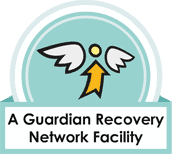Making a Resolution for This Year
After a year like the one we’ve had, the idea of formulating a list of New Year’s resolutions might seem like a little too much to muster. The truth is that we should all be going easy on ourselves, and we should be giving ourselves a huge pat on the back for surviving what we have already lived through (just in the past several months, that is). Still, the idea of writing down a list of resolutions is never a bad idea. This long-standing tradition is rooted in a desire to make positive changes – to continuously strive towards self-betterment and personal improvement. Many of us go for a long list of intentions, things like eat more fruits and vegetables on a daily basis, work out more regularly, drink more water or talk to extended family members more often. We set loose guidelines for ourselves, and if we forget to keep up with one of our resolutions it is certainly not the end of the world.
This is not the case when it comes to setting a resolution that involves a powerfully addictive drug like methamphetamine. If you have been abusing methamphetamine for any length of time, you have likely already experienced a wide range of serious personal consequences – from legal and financial issues to deteriorating relationships and a steep decline in physical health. Because this specific drug is so addictive and destructive, there is never a better time to quit than right now – right this very minute. However, simply setting a New Year’s resolution to quit methamphetamine is certainly not going to cut it.
We Are Here For You
Resolving to Quit Methamphetamine
Resolving to quit methamphetamine is not enough – in order to successfully quit long-term you have to follow this resolution up with immediate action. Part of what makes this specific drug so addictive is the intense and overpowering psychological cravings it produces. Even using this drug once is enough to provoke cravings that lead to repetitive use, and a rapid decline into dependence. Medical detox is always a necessary first step when it comes to methamphetamine addiction recovery. Once you have been physically stabilized, it is important that you transfer into an inpatient treatment center immediately, and follow inpatient treatment up with an individualized and thorough program of continuing care.
Our Meth Detox Services Include
Methamphetamine Abuse and Addiction
Methamphetamine is a highly addictive, illicit stimulant drug – one that affects the central nervous system and leads to a host of easily identifiable side effects like increased talkativeness, a sense of well-being and euphoria and a decreased appetite. Methamphetamine is one of the most addictive chemical substances known to man, and even using the drug one time can result in a physical and psychological dependence. Methamphetamine has been classified as a Schedule II chemical substance by the US Drug Enforcement Administration, meaning that it can be legally prescribed in some cases (for weight-loss or for the treatment of attention deficit-hyperactivity disorder), but that prescriptions are non-refillable. However, the drug is rarely used for medical purposes in the first place because it is so highly addictive. The 2017 National Survey on Drug Use and Health reported that 1.6 million Americans admitted to using methamphetamine at least once within the past year. The average age of methamphetamine users in 2016 was roughly 23 years old, and the main demographic of current users are between the ages of 18 and 25. During 2017, it was reported that 964,000 Americans over the age of 12 suffered from a diagnosed methamphetamine use disorder. In 2016 there were 684,000 people suffering from a diagnosable disorder – as they years go on, this number continues to rise.
If you or someone you love has been using methamphetamine, professional intervention is absolutely necessary. Because the drug is so habit-forming and because the psychological cravings are so severe (and often lead to relapse), a long-term and multi-phased program of clinical care is almost always required. If you want to make a New year’s resolution to quit methamphetamine and you are committed to sticking by this resolution, entering yourself into a medically monitored detox facility is a very smart initial step. The clinical team at the medical detox center will help you develop a detailed plan of action from there.

Ready To Begin Your Meth Detox?
We Offer A Safe & Effective Program
Don’t let Meth addiction control your life.
Call us today and let’s get you started on the path to a better you.
Renewing Resolutions
If you are dedicated to self-improvement during the year ahead, you will need to constantly revisit and renew your personal resolution to quit methamphetamine. We have compiled a list of helpful tips and tricks geared towards helping you stay on the road to recovery and continue your journey of self-betterment for years to come.
- Focus all of your attention on one resolution – quitting methamphetamine – Trying to bite off more than you can chew is a good way to overwhelm yourself to the point of giving up. Quitting a highly addictive drug is a full time job, so go easy on yourself! Don’t try to start your own business, read one novel a month, eat at least one salad every day AND quit methamphetamine. Just commit to one resolution this year, next year you can take on some more.
- Develop a detailed plan to ensure your success – Don’t allow yourself any room for error. Make a strict plan that includes when and where you are going to seek treatment, how long the treatment process is going to take and what you are going to do in order to stay on track in the years to come. Remember that finding a medical detox program is the most important step – the clinical team at the detoxification center will help you map out the rest of your personal treatment goals.
- Pick a date to enter into treatment and stick to that date no matter what – As someone who struggles with a substance abuse disorder, you have probably mastered the art of making excuses and convincing yourself that things really aren’t “a big deal.” Methamphetamine addiction is a big deal, and it is only going to progressively get worse the longer you put off receiving the help you need.
- Acknowledge the fact that you will run into speed bumps along the way – No one has a perfect program of recovery. You will mess up, and that’s completely okay – so long as you manage to stay sober.
- If you mess up or falter, immediately get back on the horse (or back on the wagon, as the case may be) – Messing up when it comes to New Year’s resolutions often means throwing in the towel and committing to trying again next year. Addiction recovery is not as forgiving as skipping a workout or eating an entire pizza after vowing to lay off the carbs. When it comes to recovery, it is absolutely crucial that you reach out for help if you ever do experience a relapse. But remember – relapse is avoidable (always) and it is never a prerequisite to recovery.
- Reward yourself for a job well done – Overcoming a methamphetamine addiction is a HUGE deal, and it is important that you treat it as such! Celebrate every recovery milestone with a group of your sober friends, even your 30 days, 60 days and 90 days. It might not seem like a big deal, but every single day you spend sober is certainly an accomplishment of epic proportions.
Begin Healing Now!
Have A Call With One Of Our Treatment Advisors
Don’t Suffer Any Longer
Pine Tree Recovery Center and Methamphetamine Addiction Recovery
At Pine Tree Recovery Center we are dedicated to helping men and women of all ages and walks of life overcome methamphetamine addiction and go on to lead the healthy, fulfilling and drug-free lives they deserve. Our home-style retreat facility is located in the heart of Portland, Maine, and is run by a team of dedicated professionals with combined decades of experience in the field of substance abuse and mental health. For more information on how to overcome methamphetamine addiction long-term contact us today.

Reviewed for accuracy by:
Randi Bruneau
LCSW, LADC, CCS
Randi is a Licensed Clinical Social Worker and Licensed Alcohol and Drug Counselor and Supervisor who has over 20 years of experience in the field of mental health and addictions. She has worked in both clinical and administrative leadership roles and also has extensive career experience in gender specific trauma treatment, crisis intervention, structural family work and substance use disorder treatment and supervision.























